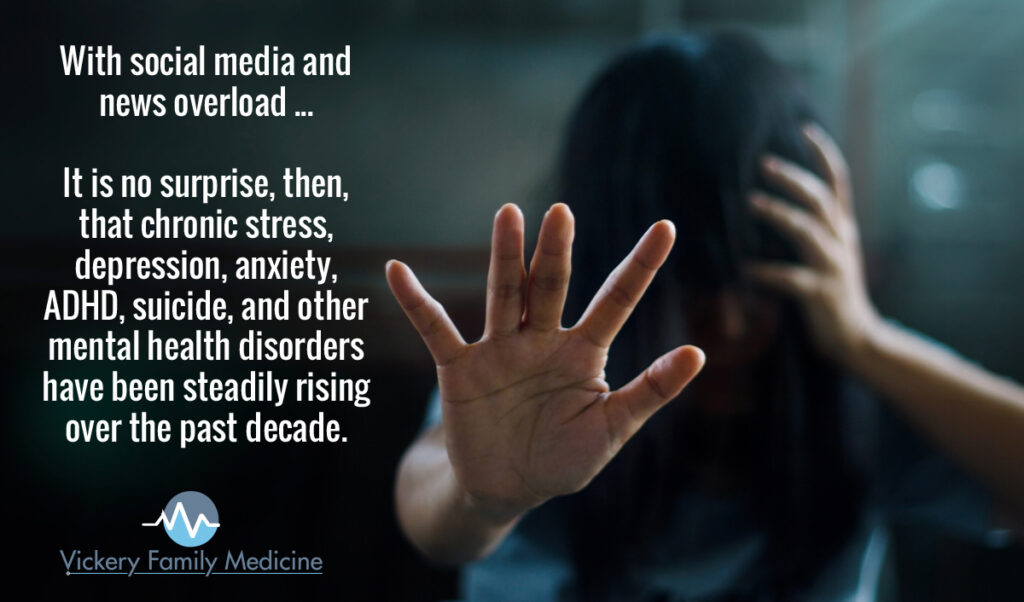Hello everyone! Dr. Troy Jackson here. Apart from the medical implications surrounding COVID19, this virus has also brought about a forced reevaluation and restructuring of our priorities and how we spend our downtime. For many of us, spring cleaning came a little early, we got a jump start on our spring gardens, and we discovered new television shows (for better or for worse — Tiger King, anyone?). But we also have become incredibly bored, feeling limited by the lack of options to do outside of our homes. Restaurants and shopping stores are closed, most hiking trails have been shut down, and our travel has come to a screeching halt. This is all in an effort to help our community fight off a pandemic, doing our part to keep our neighbors safe. But personally and professionally speaking, this idea of forced boredom can be incredibly freeing and have a positive impact on our health. Below, I will talk about strategies to use this strange time in our lives for good through mindfulness and meditation.
What is mindfulness and meditation?
Mindfulness is the intentional practice of being present in the moment, of diminishing distraction and using all of your senses to connect to the world around you. Meditation is the art of exploring the mind and clearing it of distraction. These concepts often work in tandem to improve your mind, calm your nerves, and help you feel more connected to your body and the world around you.
What are the benefits of mindfulness and slowing down?
The human body is under a constant level of demand and distraction, more so than any other time in history. We are asked to squeeze more into our daily lives, discouraged from saying “No” to things, and conditioned to see downtime as laziness. We are distracted by 24-hour news and social media constantly bombarding us with information overload.
However, just incorporating mindfulness exercises into your daily routine have been shown to improve and even reverse these mental health disorders. Mindfulness-based strategies are also linked to increased production of immune cells and reduction in inflammation within our bodies, helping us fight off disease and stay healthy. There’s also data supporting mindfulness and reduction in heart disease (the #1 reason for death in America), improved cognition, and slowed cellular aging. All of this without a pill? Can’t beat that!
How can I get started practicing mindfulness today?
The key word here is “practice.” This is not something that most people are inherently good at (specifically talking to myself!) — it requires ongoing work and dedication, building up your skills over time. Below are some ideas to get started. Think of these as a prescription from your doctor!
- Do not look at your phone, computer, or tablet when you wake up. Spend time in silence, enjoying your coffee/tea, listening to the songbirds, or journaling about three things that you are grateful for. I, personally, have been waking up a little earlier than usual to ensure dedicated alone-time.
- Try turning off the radio in the car during your commute. Drive the speed limit and notice the beauty around you.
- Set a reminder throughout the day to briefly pause for deep breathing exercises.
- Incorporate a no-technology time after work (or at mealtimes!)
- Recognize the power of not having as many options to fill up your schedule. Connect with your family, spend more time outside, sit and do nothing.
- Use self-guided meditation apps (Calm, Headspace, Insight Timer, etc) to get you started.
I encourage you to use this time of social distancing to dabble with mindful meditation techniques. Spending time reflecting, meditating, or simply doing nothing is absolutely vital to your health. Make this your new normal and be intentional about setting boundaries to keep it a part of your daily routine. The social and physical restrictions with COVID19 will soon go away. Don’t allow the focus on your health to go away with it.
Resources:
— Chapter 6 of Authentic Health by Dr. Gus Vickery (http://ebook.drgusvickery.com)
— The Ruthless Elimination of Hurry by John Mark Comer (written from a Christian perspective, so may not appeal to everyone)
— This great website: https://www.mindful.org/meditation/mindfulness-getting-started/














